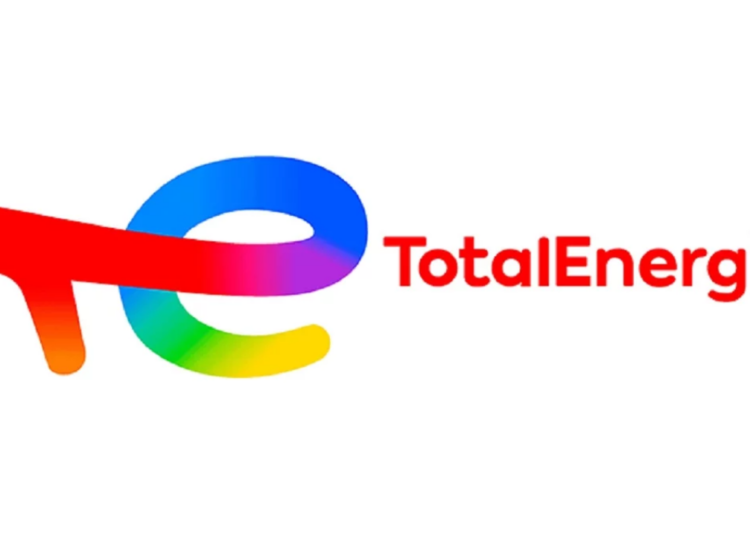TotalEnergies said it is progressing with its near and long term energy transition initiative which will see significant reductions in Greenhouse Gas Emission, GHG and Carbon Footprint.
As part of its global efforts in the transition programme, TotalEnergies is ramping up the Solarisation of energy sources in across its facilities and host communities in Nigeria, and has achieved a modest generation of 0.12MW in 2021 to 0.55MWp in 2023 and with a target of 9.4MWp by the end of 2025.
The oil major is also close to eliminating routine flaring at its installations in Nigeria by the end of 2023.
Confirming upcoming key gas project being undertaken by the firm to our Correspondent at the opening the 41st National Association of Petroleum Explorationists, NAPE, conference in Lagos on Monday, Emmanuel Ekue, Deputy General Manager, DGM, Subsurface Development Integrator, said TotalEnergies is set to take Final Investment Decision, FID, on its UBETA OML 58 field by Q1, 2024.
Ekue, confirmed to LEADERSHIP that the field is a prolific asset that will upscale gas Supply to the Nigerian Liquified Natural Gas, NLNG plant and further improve domestic gas supply.
He said the project adequately aligns with the Federal Government gas Commercialization and domestic utilisation initiative.
Speaking earlier at the event, managing director and chief executive of TotalEnergies E&P Nigeria Ltd, Mr. Matthieu Bouyer, said the company is developing a business model that addresses transition to sustainable energy sources and investing significantly in renewable energy sources to accelerate low-carbon solutions.
Bouyer said the theme of the conference, “Repositioning Oil and Gas Industry for Future Energy Dynamics”. is apt in addressing the challenges of the sector, and that TotalEnergies is proud to be associated with NAPE, a foremost professional geoscience body which has provided the platform over the years for key stakeholders in the Oil and Gas sector to exchange ideas and provide valuable inputs for the industry to constantly adapt to global changes in the energy business.
“For more than a century, oil and gas have powered the socioeconomic lives all around the globe. However, it has been realised that the unintended consequences of uncontrolled and unsustainable generation, processing and use of fossil fuels are far greater than previously thought. Top on the list of these undesirable consequences is Global Warming with all its manifestations.
“Consequently, society has been responding by discouraging the generation and use of energy sources with high greenhouse gas (GHG) emissions and high carbon footprints and promoting the use of cleaner, and renewable energies sources.” he stated.
To continue to be relevant, or even survive in the foreseeable future, Bouyer, said policy makers, regulators and other stakeholders in the Nigerian oil and gas industry must respond by evolving a future business model of “multi-energies” and placing more responsibility on people and the environment by progressively reducing the carbon footprints of petroleum exploration operations whilst transiting to cleaner and renewable energy sources.
On its part the Bouyer, said TotalEnergies, is strongly adopting business models with greater focus on People’s well-being and evolving solutions that ensure and enhance the health and safety of our population.
He assured that the company will continue to adopt projects that create value for the society and foster the development of economic opportunities for the local communities while also getting host communities more involved as stakeholders in its projects.
Speaking on set targets, he said, “We believe more progress will be made if we set concrete targets for the near and long term in the following key areas as a country and as stakeholders.”.
The target include reduction in GHG Emission and Carbon Footprints which implies evolution of energy mix, (Percentage of Oil, Gas, Electricity, Biomass, Hydro, and hydrogen) by 2030/2050
At a global scale, TotalEnergies aims to reduce its global GHG emissions from oil and gas facilities by 40 per cent in 2030.
Bouyer said by 2030, the Company is targeting an energy mix of: Gas (50 per cent); Petroleum products (30 per cent); Electricity (15 per cent); Biomass and hydrogen (five per cent).
According to him, “In this journey of energy transition, we recognize the strategic role of natural gas. Gas produces half the GHG emissions of coal for the generation of electricity. It emits less GHG than oil for the same quantity of energy and in its liquefied form (LNG), it offers similar ease of storage and transport. Gas is therefore the key energy of the transition as renewable energies today cannot meet the energy needs of the world’s populations.”











